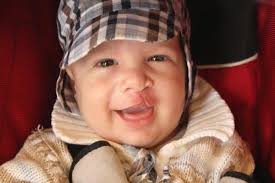Cleft palate and cleft lip both are facial malformations that present in early in pregnancy when the baby develops inside the mother. Clefting means not enough tissue in the mouth or lip and doesn’t join together properly.
Children’s who are having cleft palate from birth mostly experience middle ear problems. They may have difficulty with the speech which includes sounding nasal. This is caused because he is unable to properly close off the mouth from the nose while speaking.
If you need more information or you have a question regarding cleft palate and hearing loss, you can discuss it with our HearingSol healthcare professionals, just give us a call on +91-9327901950. We are always here to help you.
Hearing
Despite the fact that the cleft palate and the ears are far from each other, kids with a cleft palate can have a higher probability of ear diseases and hearing loss than kids without a cleft palate.
 This occurs because of a structure called the eustachian tube. The eustachian tube permits within the ear to deplete any liquid out into the back of the nose.
This occurs because of a structure called the eustachian tube. The eustachian tube permits within the ear to deplete any liquid out into the back of the nose.
Due to the irregular position of the muscles and tendons in youngsters with cleft palate, the eustachian tube can’t drain the ear and additionally in kids without a cleft palate. This is very important, as liquid gathering inside the ear can influence hearing. And can generate higher dangers of the center ear.
Consequently, it is very important for kids with cleft palate to have a regular hearing test, for guardians to know about the danger of ear diseases and to consider any scenes of ear pain seriously. Regularly, if the eustachian tube isn’t draining liquid and in addition, it needs to.
It is important to drain the liquid gathering using “ear tubes,” “ventilation tubes” or “grommets,” which are little metal or plastic tubes set over a cut in the eardrum that enables any liquid collections to drain out of the ear through the tube.
At the point when there is a cleft in the palate, hearing issues can emerge. Because of the muscles in the soft palate not working effectively. These muscles move when we yawn, eat or swallow. And they pull open the Eustachian tube to permit entry of air into the center ear.
Causes of Cleft Palate
- Genetics
- smoking during pregnancy
- diabetes during pregnancy
- using drugs or alcohol during pregnancy
- poor prenatal healthcare
Treatment of Cleft Palate
The aim of the treatment is to improve the child ability to eat, speak, and hear normally and to get a normal facial appearance. Treatment includes surgery to repair the defects to improve any related condition. It involves a team of doctor to take care of the child. These includes:
- Surgeons who specialize in cleft repair
- Pediatric Dentists
- Ear, nose and throat doctors (ENTs, also called otorhinolaryngologists)
- Auditory or hearing specialists
- Psychologists
- Speech therapists
- Genetic counselors
- Social workers
- Oral surgeons
- Pediatricians
Conclusion
It is necessary to treat hearing loss since it can have such a big influence on a child’s development. Your child may need services from a number of professionals. Many times, services come from a cleft palate. The team from services includes are – plastic surgeon, audiologist, SLP, social worker, orthodontist, etc. However, it is not possible to say usually that one treatment is better than another.
Read more –
